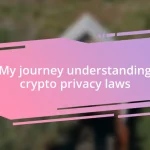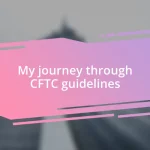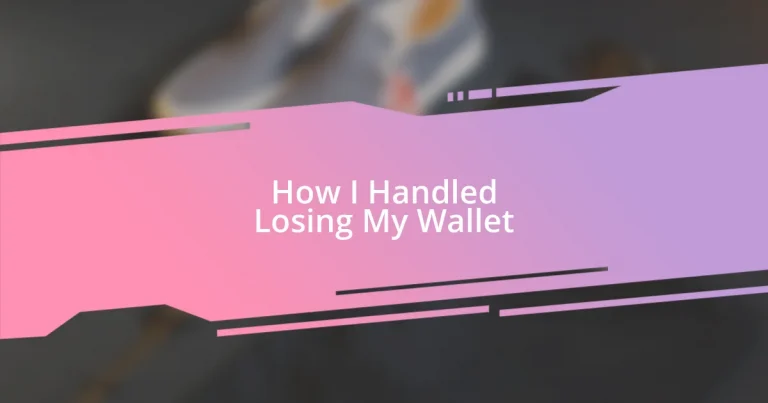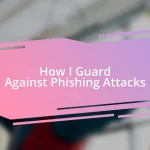Key takeaways:
- Successfully recovering lost cards and IDs involved proactive communication and reflected personal identity management.
- Preventative measures like using a tracking device and establishing a routine helped minimize future wallet loss anxiety.
- Coping strategies such as mindfulness, physical activity, and creative outlets provided essential stress relief during the chaotic experience.
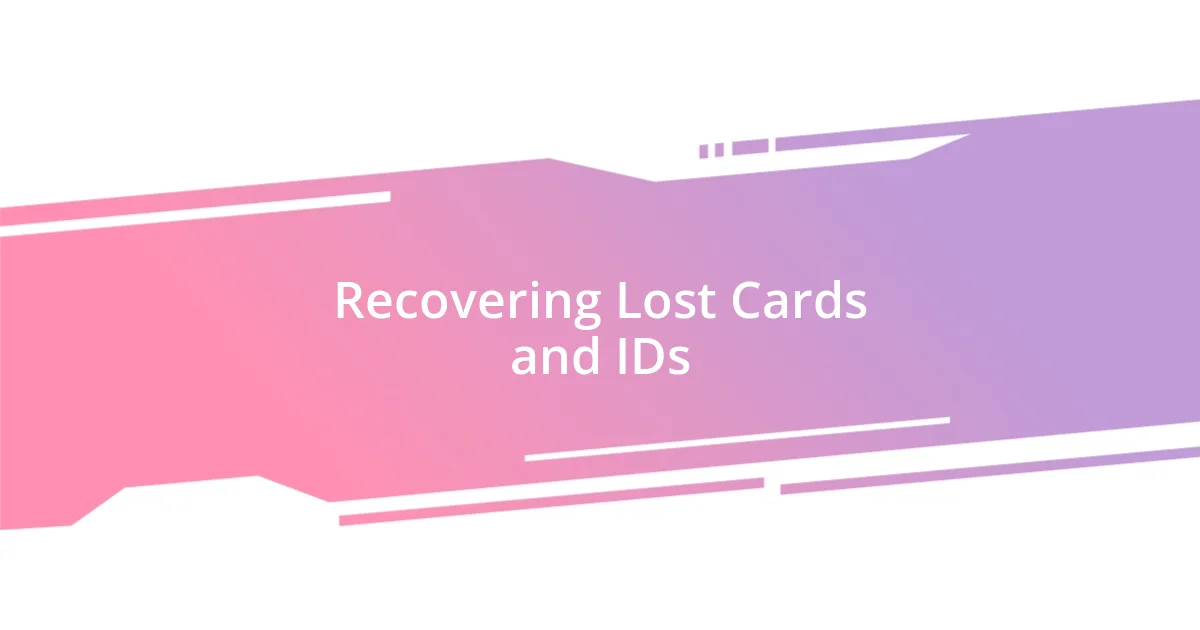
Recovering Lost Cards and IDs
When I first realized my wallet was gone, the sinking feeling was unlike anything I’d felt before. I had to take a deep breath and remember: the cards and IDs I needed to recover wouldn’t just magically reappear. The first call I made was to my bank; the relief of having my debit card canceled felt like a tiny victory. Have you ever felt that way — where each small win feels monumental amidst chaos?
I also reached out to the Department of Motor Vehicles to report my lost ID. I was pleasantly surprised by how understanding the staff was. Being able to explain my situation — the panic, the frustration — made the process smoother. I remember sharing a laugh with the clerk over my ridiculous ‘lost wallet’ scenario, and it almost made me forget the anxiety of the situation. It reminded me how important it is to communicate the emotional side of these incidents.
In hindsight, I found that replacing my IDs was more than just a logistical task; it was a personal journey of regaining my secure sense of identity. I reflected on how easily something so vital can slip away. Have you considered what your IDs represent in your life? They’re more than just cards; they’re pieces of your personal history and security. The moment I held my new driver’s license, I felt a strange mix of gratitude and empowerment, knowing that I regained a part of myself that had momentarily vanished.
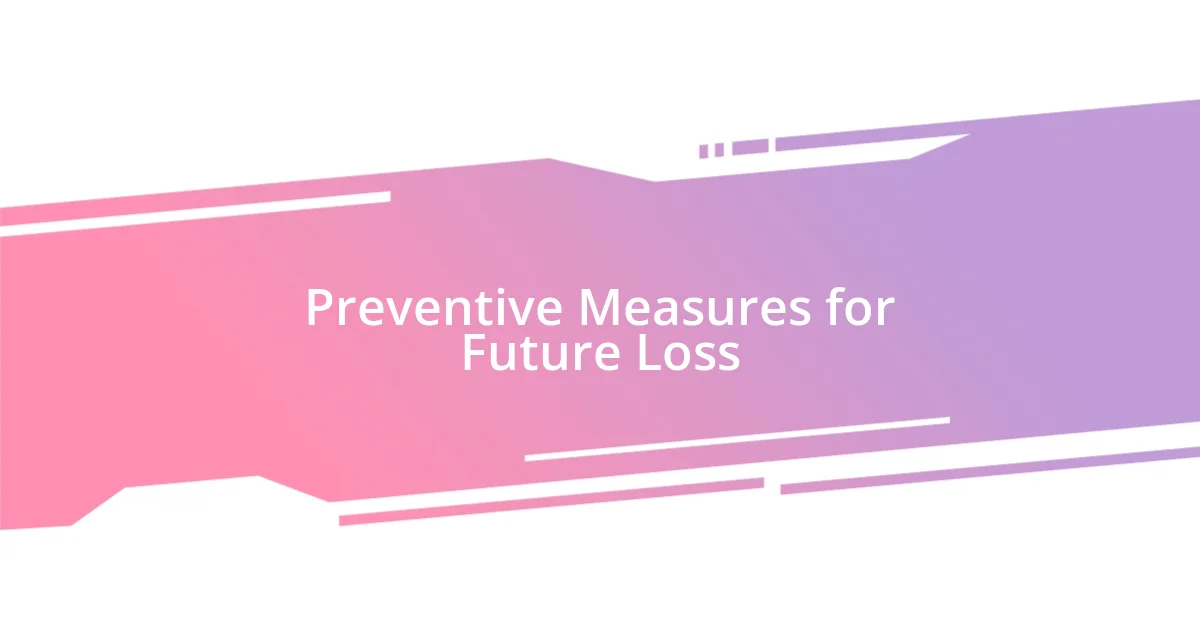
Preventive Measures for Future Loss
To prevent future wallet loss, I’ve adopted a few key habits that have worked wonders for me. First, I invested in a tracking device that I attach to my wallet. It might sound a bit over the top, but I can’t express how reassuring it is knowing I can pinpoint my wallet’s location at any given moment. Have you ever lost something just to find out it was in the couch cushions all along? Imagine having a little gadget that tells you it’s there before you even start searching!
Additionally, I established a routine check before leaving any place—whether it’s a café or a store. Now, I simply ask myself, “Do I have my wallet?” as part of my mental checklist. It feels a bit silly, but this small habit has saved me more than once. The anxiety and rush I used to feel when forgetting my wallet can easily be avoided with this simple question.
Lastly, I keep my wallet in the same pocket or bag compartment every time I go out. Consistency has a way of turning into muscle memory. There’s something oddly comforting about knowing exactly where to find your essentials. I remember one time when I was in a hurry to catch a bus and, instead of frantically searching, I went straight to the designated pocket and there it was! A small act of organization that brought me a wave of relief amidst the chaos.
| Preventive Measure | Description |
|---|---|
| Tracking Device | A gadget that helps locate your wallet quickly |
| Routine Check | Asking yourself if you have your wallet before leaving |
| Consistent Placement | Keeping your wallet in the same location every time |
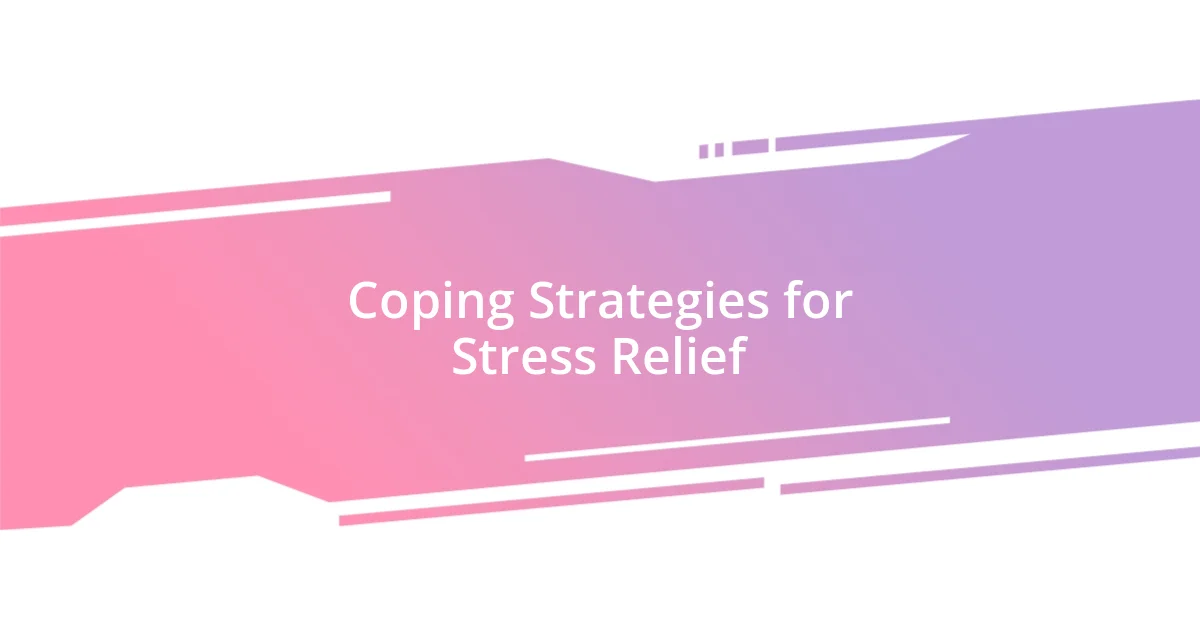
Coping Strategies for Stress Relief
When I found myself reeling from the panic of losing my wallet, I knew I needed effective coping strategies to manage the stress. One evening, after a particularly frustrating day, I decided to go for a long walk. There’s something about moving my body in the fresh air that brings clarity. I began noticing the little things around me — the rustling leaves, the laughter of children. It reminded me that life carries on regardless of my immediate troubles, and this perspective shift was incredibly calming.
In those moments of anxiety, practicing mindfulness can be a game-changer. Here are some coping strategies I often use:
- Deep Breathing: Taking slow, deliberate breaths can help ground you and reduce anxiety.
- Physical Activity: Engaging in any form of exercise releases endorphins, which can lift your mood.
- Journaling: Writing down my feelings provides an outlet for my emotions and helps declutter my mind.
- Positive Affirmations: I often remind myself that it’s okay to feel upset — acknowledging my emotions is a step toward healing.
- Talking it Out: Sharing my experience with a friend or family member not only lessens the emotional burden but often results in support and understanding.
Interestingly, I’ve also explored creative outlets, like painting and cooking, as ways to relieve stress. I remember whipping up a batch of cookies after I lost my wallet; the process of measuring and mixing ingredients acted like a soothing ritual. It’s a tangible way to channel my feelings. Plus, the aroma of fresh cookies wafting through the house was an unexpected reward, turning a chaotic day into a simple pleasure. Sometimes, redirecting that energy into something enjoyable can create a positive ripple effect, helping me find balance amid a storm.
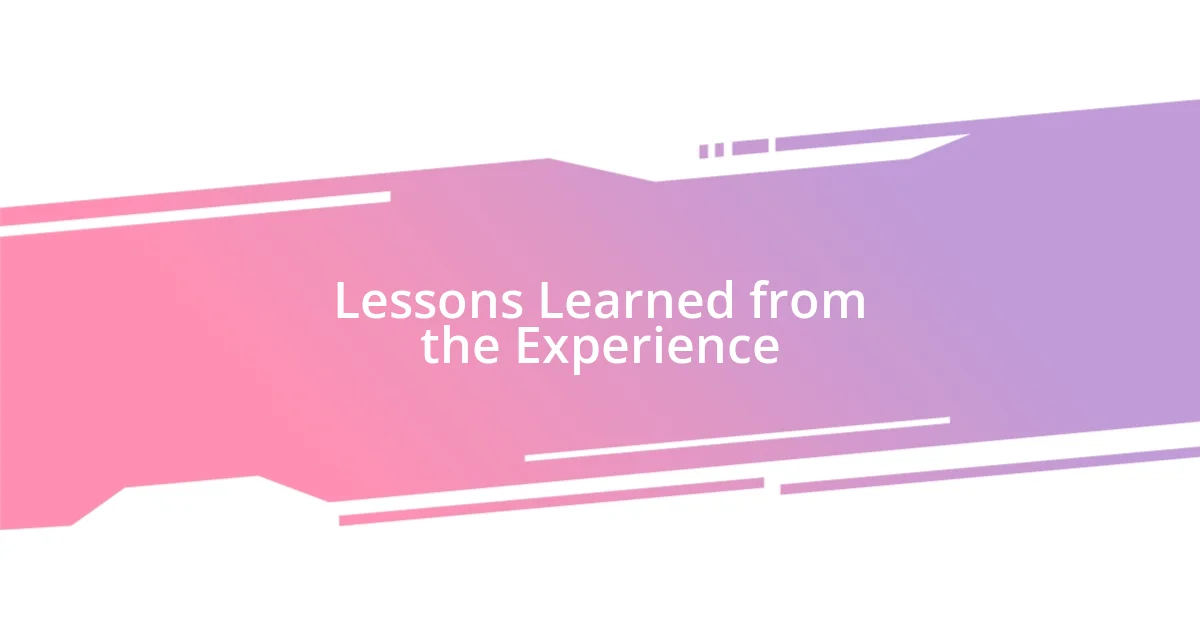
Lessons Learned from the Experience
Losing my wallet was a wake-up call about the importance of staying organized. I had always considered myself a pretty laid-back person, but that incident made me realize how chaotic life can get without a little structure. Have you ever noticed how a small disruption can turn your day upside down? It pushed me to create little systems that not only help me keep track of my wallet but also other essentials, significantly reducing my overall stress.
Another profound lesson was about emotional resilience. I learned to accept that life is unpredictable, and sometimes things go missing despite our best efforts. The acceptance came from repeatedly reminding myself that while I could replace what was lost, my peace of mind should be preserved. Through this, I started focusing on the things I could control, which made me feel empowered, even in challenging situations.
Lastly, I discovered the value of reaching out for support. I vividly remember calling a friend to share my wallet mishap. Not only did they listen, but they too admitted to similar experiences, sparking a connection that eased my embarrassment. This taught me that vulnerability can forge deeper relationships. Sometimes, sharing our struggles can reveal that we’re not as alone as we think, and that shared understanding can be a comforting balm during such unsettling times.






